Kwarta o Kahon?
For me, an area of moral clarity is: you’re in front of someone who’s suffering and you have the tools at your disposal to alleviate that suffering or even eradicate it, and you act. – Paul Farmer
After a year of blogging – with due attention to the A-I-D-A model of communication(Awareness-Interest-Desire-Action) and the two step communications diffusion model, early adopters in the mainstream media have taken awareness, shown interest, expressed desire, and are now taking action to make charter change happen. Not that they haven’t tried before. They have tried all modalities in fact – conventional convention, constituent assembly, and initiative.

Charter change is but one component of a multi-pronged approach at addressing the Philippine dysfunction.The other component is the intra-generational cultural evolution. It is more strategic in nature, and works with the fundamental cultural DNA of the Filipino.
Cultural change addresses the long-term, charter change jump starts and provides the priming mechanism that address the structural imbalances which enable such values, attitudes, and lifestyles (VALS).
Barriers to Investment
There are fiscal and non-fiscal barriers to investment.
The protectionist constitutional clauses (non-fiscal barrier) provide the basis for the FINL (fiscal barrier). Address the constitutional clauses that enable the FINL. removing that specific clause – will also imply and if need be outright repeal of the FINL mechanism.
Investors not facing FDI equity restrictions (versus more volatile stock market) will be more inclined to invest in countries without such restrictions such as Singapore and Hongkong.
The numbers are there.
Foreign AND domestic investment are needed to spur the local economy
However, it should be under a level playing field – not where ALL foreign investors are coerced by law to go into A 60/40 joint venture with a Philippine citizen – as a minority equity shareholder – that is so BASIC. What’s the point in making a sales pitch when you can’t even sign him up under your rules?
FDI is not the magic bullet or the silver bullet BUT you don’t want FDI to be severely restricted. The current economic policy regime – is highly skewed in favor of the local oligarchy – and that needs to go. The debate between import substitution and liberalization and protectionism is pretty much well covered – I don’t have to belabor the obvious. When I incorporated in the US – there was no such restriction.
In 2007, the Australian Minister for Trade, Warren Truss, released a report on investment in member economies of the APEC region.
Reducing Behind-the-Border Barriers to Investment has been prepared for the APEC Investment Expert Group by the Canberra-based Centre for International Economics.
“Investment is crucial to economic growth and to help reduce poverty for people across the APEC region,” Mr Truss said.
“This report will inform APEC’s growing work on investment and structural reform. Ministers will discuss these issues at the APEC Ministerial Meeting.
“Because most investment in member economies is sourced domestically, the reduction of these behind-the-border barriers to investment offers considerable potential for economic growth.
“I welcome the report and note that it reinforces the message from APEC Finance Ministers in August that continued structural reform is needed to tackle investment barriers in the region.
“It is the APEC way to encourage change rather than be prescriptive and this report is a store of valuable information that can be adapted to meet local conditions in member economies.”
The report has found that restrictions to investment are greater in lower-income APEC economies than in the more prosperous ones and that domestic savings in the lower-income economies tend to be invested abroad despite ample investment needs and opportunities at home.
It identifies behind-the-border barriers to investment as encompassing domestic policies, rules, procedures and laws which may include excessive regulation, unclear property rights and poor legal systems. They increase costs and risks and limit business competition leading to lower productivity and growth.
The report concludes that if investors in APEC economies faced fewer barriers, investment would be higher and of a better quality, economic growth would rise and the incidence of poverty across APEC would fall.
Reducing Behind-the-Border Barriers to Investment is the second of two APEC complementary reports prepared by the Centre for International Economics for APEC on investment. The previous study – released in 2006 – looked at barriers to cross-border foreign investment.
Here are the slides from the CIE report.
BV: Pinoys are still going overseas.
BV: Investment reduces poverty better than wasteful CCT stimulus and pork barrel.
And the US recession didn’t make it any better.
Whaddya know – Philippines has high barrier to investment.
Ownership is a major barrier – 60/40 – foreigners can’t own more than 40% – how long does that have to be rubbed in your faces till you get it? How many foreign investments have we let slip our hands because we wanted to ensure foreigners went into a joint venture – and had to be the minority – across ALL sectors (Telecom, banking, agriculture, health, education, manufacturing, services, electricity, water)? Protectionism does not work.
More barriers, lesser takers – it’s VERY simple.
More barriers equals greater cost of doing business.
Newspapers tout portfolio investments – that’s “hot money” and can go in and out of the economy quickly.
FDI on the other hand is more “permanent” – is “on the ground”. Buildings are built, offices are built, people are hired, taxes are paid, etc.
All these are barriers – from an LDI perspective, there’s a lot of improvement needed in the business processes. From an FDI perspective there’s a need to address the ownership issue because you can’t drill down to the FINL unless you are legally allowed to do business. If you are a foreign investor – you will not be able to “enjoy” the local inefficiency unless you are willing to: a) go into a joint venture; b) stay stuck in an EPZ; and c) become a Filipino citizen – all of which have their retinue of bureaucratic hubris.
Once the ownership issue has been hurdled and investments are in – then behind-the-border barriers take primacy.
Enforcing contracts in the Philippines can be a headache – and dangerous, too.
The Philippines has no credit scoring system. Access to credit is based on collaterals, connections, and fraud.
These shows that domestics savings in the Philippines is high but there is no motivation to invest – why?
Because the Philippines protectionist economy stifles competition – not a good environment for investments.
Solutions that go beyond your personal space – solutions that are bigger than your personal life – not for the faint of heart and faint of mind.
Sure we can all strive hard and all that – but beyond THAT – you need processes and institutions that work – individual reponsibility can only take you so far. After you step out of the confines of your personal space – you have to start working with other persons – process and institutions will come in handy.

Federalism
The presence of distinct ethno linguistic groupings in contrast to a more homogenous ethnolinguistic grouping provides a strong rational.
As a matter of disambiguation – the Philippine has more in common with the cultural diversity of the federal EU – and this can be operationalised from the federal structure of the American model.
Parliamentary vs Unitary
The design of the car is still fundamentally an internal combustion engine. But some designs do better than the rest – the KPIs on economic performance of Parliamentary vs Unitary – are quite interesting.
Fixes:
While culture sustains the economics, economics provides the motivation to change the culture. Culture and Economics are intertwined and have synergy. Building a silo of solutions limits the effectiveness of achieving the goal. I’ll keep it simple – Maslow’s heirarchy of needs – it’s tough to talk culture when you have not addressed the basics of food-clothing-shelter-education – and that is in the realm of economics. Culture enriches economics, economics enriches culture.
Changing culture however can be jumpstarted by creating an enabling economic environment. Little boy from farming town goes to ivory school, comes back as Silicon Valley venture capitalist – he’s got a name – Dado Banatao. How do we bring that same enabling environment that allowed Dado Banatao to generate wealth – to the Philippines?
Where does culture come in? Here’s where – those who have the cultural carrying capacity to recognize that the economics needs to be fixed at the structural level to enable economics at the micro-level better start working – or be forever caught in a catch 22 of waiting and writing about what needs to get fixed. Am I my brother’s keeper? If not then – that’s fine. But when you do decide to revisit the question – think about it – do I just wait for the dude to shape up or do I do something that increase his chances not just at the personal level but at the structural layers that are impacted on by the economic policy framework.
People have differing thresholds of engagement – and it boils down to one’s preferences.
There’s a point when the train does leave the station – and you actually… fix it – that’s where the lines will be drawn.

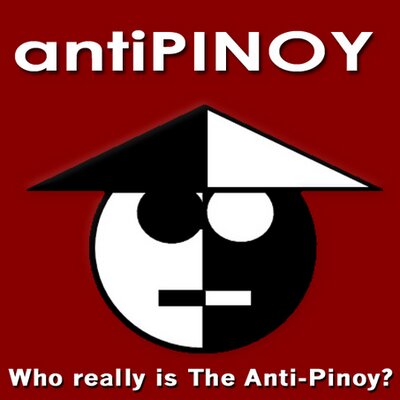



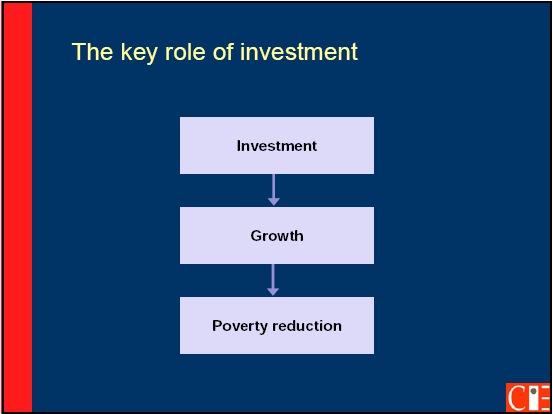
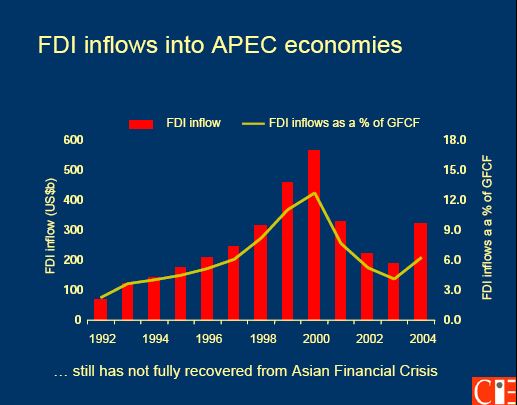
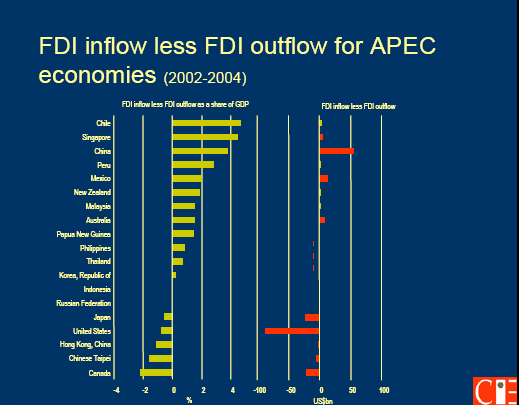


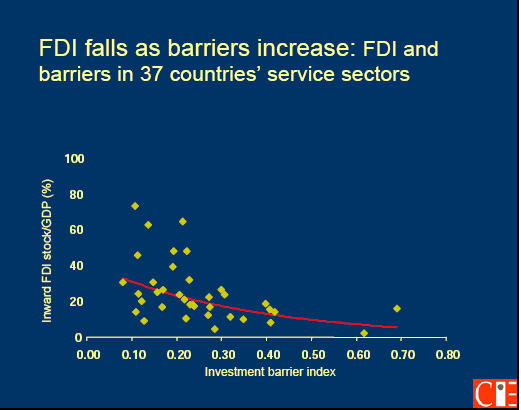


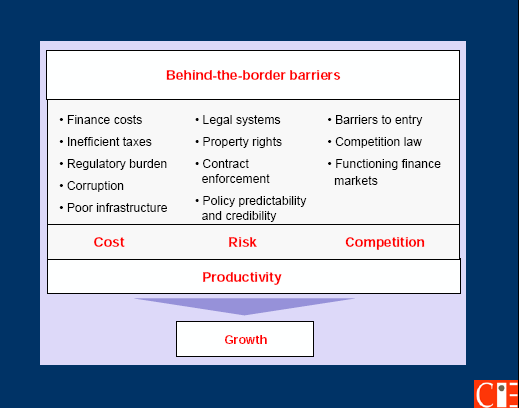






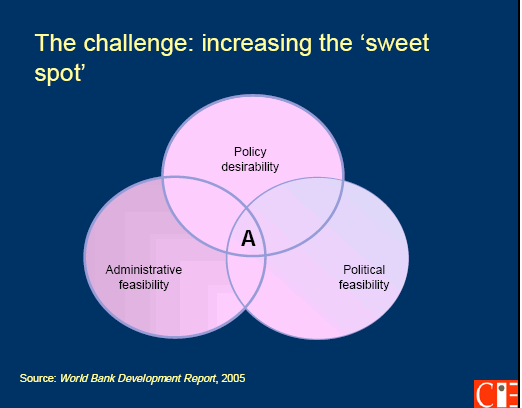
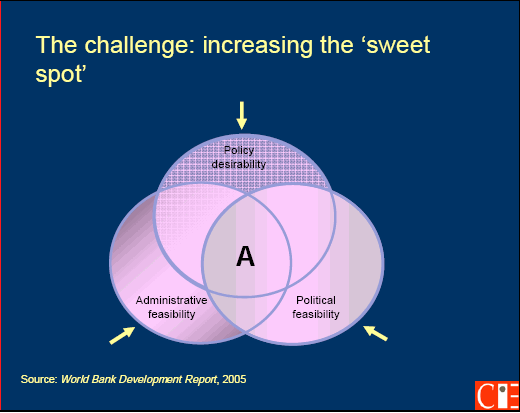
I liked this article a lot.
Fundamentally, there needs to be a radical change in mindset for both the government and the business sector. We need to do away with unnecessary customs procedures and tariffs which hinder investment. We need to rethink and get away from the detrimental bureaucratic policies we have. But i believe we also need to ensure that if we are to make internal policies like that of Australia, that we are aligned globally with true free trade agreements (that are not overly preferential). Alignment to the Bogor goals are ok, however, they are not particularly well-defined. (Let’s hope though that there is a resolution that comes out of the reopening of the Doha discussions of the WTO.) If the Philippines is really keen in joining the TPP, then we need to eliminate barriers not just in governance, but in better labor practices, having a better educational system – because these things drive competence, widens opportunities and thereby alleviating ignorance which contribute to poverty.
It is funny how Filipinos value savings but are not brave enough to invest. We are so risk-averse culturally because our national confidence is low. Our global awareness is low. We tend to settle with mediocrity because the view we take on is particularly narrow.
“It is funny how Filipinos value savings but are not brave enough to invest. We are so risk-averse culturally because our national confidence is low. Our global awareness is low. We tend to settle with mediocrity because the view we take on is particularly narrow.”
I have to disagree with you here despite agreeing with your core message.
It is flawed to state a culture is risk-averse when the risks aren’t that clear to the culture surrounding the risk takers.
Even this article had to channel Maslow just to explain a fix. Can you imagine how it is once the actual message has to hit the general culture?
I believe when many of the high risk takers take worse and much more flawed risks than becoming an entrepreneur and the culture ends up assuming that’s what a risky investment actually is… can you blame them for being risk averse? Even when they value savings, they don’t value it economically. Not because they disrespect it but because the economics themselves are what flawed which is what the article is writing but in no way should this be a clue for whether a culture is really risk averse or not.
It’s also in my opinion counter-productive to state that if global awareness is high then we wouldn’t be mediocre. All this does is just alienate the message of free trade further to those who bought the Ostrich Psychology. The national confidence is high…maybe mediocre. It’s not low because of that propaganda. And if you start speaking as if it’s low and then claiming higher global awareness helps then all it does is create an anti-free trade fear especially because even globally there may be certain sections where free trade is adopted but certainly not in such a way that we can say “everyone else does it right except for the Philippines”.
IF EVEN THE G-7 ARE SO PROTECTIONIST THEMSELVES, WHY SHOULD WE BE OTHERWISE?! THIS IS WHY WE WERE MOST DAMAGED BY JOINING THE WTO, WE ARE TOO STUPID TO BELIEVE IN THE GOOD FAITH OF WHITE WESTERNERS. FAIR TRADE, NOT FREE TRADE GODDAMNIT!
Noynoy Aquino is puzzling me more and more.
Do the Noynoy Aquino recent words about guarantees for infra investors ring dangerous?
If there are payments to infra-investors that Congress says “no can do” and Pilipinas Supreme Court says “unconstitutional” yet Noynoy pays up, I would expect that impeachment 👿 proceedings get hurled against Benigno Simeon “Noynoy” 😐 Aquino.
Executive Orders and diktat can only go so far. Beyond a certain line, impeachment and surge-the-gates is the appropriate reaction.
Free trade IS Fair trade, Comrade JUANDELACRUZ (What are you, a backward commie?). In the intercourse between nation-states, protectionism leads to long-term economic slowdowns by making trade imbalanced in favor of one state or the other.
I don’t believe that the profit sharing incentives can alone attract foreign investors. The country must be conducive to foreign in vestments. We have not touched these area like:
(1) On going insurgencies.
(2) Massive poverty due to feudalism.
(3) Unrestricted corruption. Political Warlords.
(4) Skilled Technical People have gone to work as OFWs. Onyl the thieving Politicians are left,
pretending to know everything about technology.
So, the Philippines choices are no good. Caught between a rock and a hard place.
Commie’s advocate for a moment, wouldn’t free trade open up a country to having the local market flooded and destroyed by ‘dumped’ cheaper imports BEFORE the local economy has a chance to build up its own competition?
The constitution should allow gradual loosening of protectionist conditions in order for the locals to cope up with the competition.
Our culture is risk-averse. It is not only a matter of presenting information to those risks. It comes from the lack of initiative in finding out and knowing those risks. The average Filipino does not knowingly take initiative to find things out for himself in order to reach an informed decision. He waits to be presented with the information. This stems from a lack of resourcefulness, a lack of wanting to self-learn, etc. And because he wallows in this kind of self-initiated misinformation, the Filipino is trapped with a kind of ill-conceived notion of his own economic confidence. The national economic confidence is low because in relation to the Filipino being risk-averse, some so-called Filipino entrepreneurs do not go beyond the “sari-sari store concept” or the underground economy – a majority of which do not pay taxes. Because he believes in quick fixes without promoting the national economic good.
At the point of taking risks, high risk takers gamble on outcomes. More appropriately said, they take risky decisions in the hope of a higher pay-off. Whether that decision pans out to be ineffective is part of the entrepreneurial experience. The problem lies when the FIlipino uses the failure of one entrepreneur to justify his own fear of risk-taking.
Some Filipinos are like fish in a fishbowl, he is content with being in bowl because there are less risks. If you pour ink into the fishbowl, the fish automatically dies. Because he has nowhere else to go. A fish in an open sea, though, may have a myriad of risks, but he is open to what is called “adjacent opportunities” because he can mingle more, swim to other avenues and therefore he is expanding his options – options that he took to himself without having these options presented to him. (as if the options present themselves automatically!)
Let me cite evidence on how the Filipino, being risk-averse, contributes to low national confidence. There was a Fin-Q (Financial Quality) survey conducted in 2008 by an Australia financial research firm and Citibank on Filipinos’ financial outlook. The Filipino values savings. However, he does so in short durations and without thinking long term. 1 out of 10 Fiipinos have savings bundled with retirement. A majority wait for their companies to provide them one. That is partly why we do not have 401k-like stocks in the country. Furthermore, 8 out of 10 Filipinos say they worry about their retirement of which 50% said that they expect their children to support them in their old age. The national confidence is not high. Perhaps our flawed national identity is. But national confidence is also about our utilization of banks, a growing agricultural sector which trusts in cooperatives, high value in pursuing quality education, confidence towards infrastructure building, generating tax-contributing businesses, etc.
Plus global awareness is not about just knowing. It’s about adopting that awareness into actionable measures in uplifting one’s life. An example: Why do studies show that those who are fluently bi-lingual have better prospects for advancement? (Case in point, Europe – especially those Nordic countries whose quality of life indices are higher than even the US.)
In a study conducted by Newsweek re: the Best Countries in the World to Live In, countries like Finland, Sweden, Switzerland, Luxemburg, Norway, the Netherlands have well-built educational curricula that promote global awareness and diversity. They are the same countries who have the highest economic dynamism. They are the same countries who have public option health care systems and have better overall quality of life.
I got lost in understanding your point in this sentence: “The national confidence is high…maybe mediocre. It’s not low because of that propaganda. And if you start speaking as if it’s low and then claiming higher global awareness helps then all it does is create an anti-free trade fear especially because even globally there may be certain sections where free trade is adopted but certainly not in such a way that we can say “everyone else does it right except for the Philippines”.” So, please explain it to me again just so that i do not mistake its meaning.
The anti-free trade fear is often times an emotional response to uncertainty. Filipinos, in order to embrace new knowledge and innovation must know that there is a difference between TRUE FREE TRADE and PREFERENTIAL trade (that sometimes disguises itself as free trade.) This kind of fear stems from a lack of confidence to compete, and inability to raise the bar in order to compete. Clearly though, i never said “everyone does it right except the Philippines.” However, it must be acknowledged that the Philippines is one of the most restrictive countries to do business with. Thus, the article.
Considering that the empty mind that is JUANDELACRUZ is advocating protectionism… Sure, local markets are safe in a protectionist state, but HOW. THE. HELL. DO. YOU. ENSURE. ECONOMIC. GROWTH. AND. PROSPERITY?!
And yes, I did call the fool a backward commie.
in the past it was thought that Big MNC’s/foreign companies exploit poor countries by buying raw materials from them and selling them the finished product, making the country poorer but history has proven it wrong. Look at China, Singapore (not being biased, let me explain) in number 1 and number 2 why I didn’t include Korea Japan etc.
1. Facts: Singapore doesn’t have any resources and China has a lot.
what they have in common(when they were still third world countries) is that they lacked the knowledge/technology.
Bringing MNC’s in created JOBS, TECHNOLOGY TRANSFER(Managment and Technical Skills) Increase exports(depending on the competitiveness compared to other countries in terms of price)
-brings money
-enriches knowledge of people(helps entrepreneurs open their own business)
-increase export, GDP
-reduces unemployment
SO YOU SEE ALLOWING FDI TO COME IN(with less restrictions) IS REALLY A PLUS RATHER THAN A MINUS.
2. With regards to HK japan etc.
with Hong Kong
-when the communist overtook china in 1949 many business men from shanghai and other parts when to HK (so you see they had bankers etc that is one reason they are successful plus that HK was the only door way to china in the past)
Japan
After the war a lot of Japanese were sent abroad learned technology pioneered technology and tada a good economy.
Hier haben Sie das Schnellste Schlusseldienst in Berlin und Umgebung